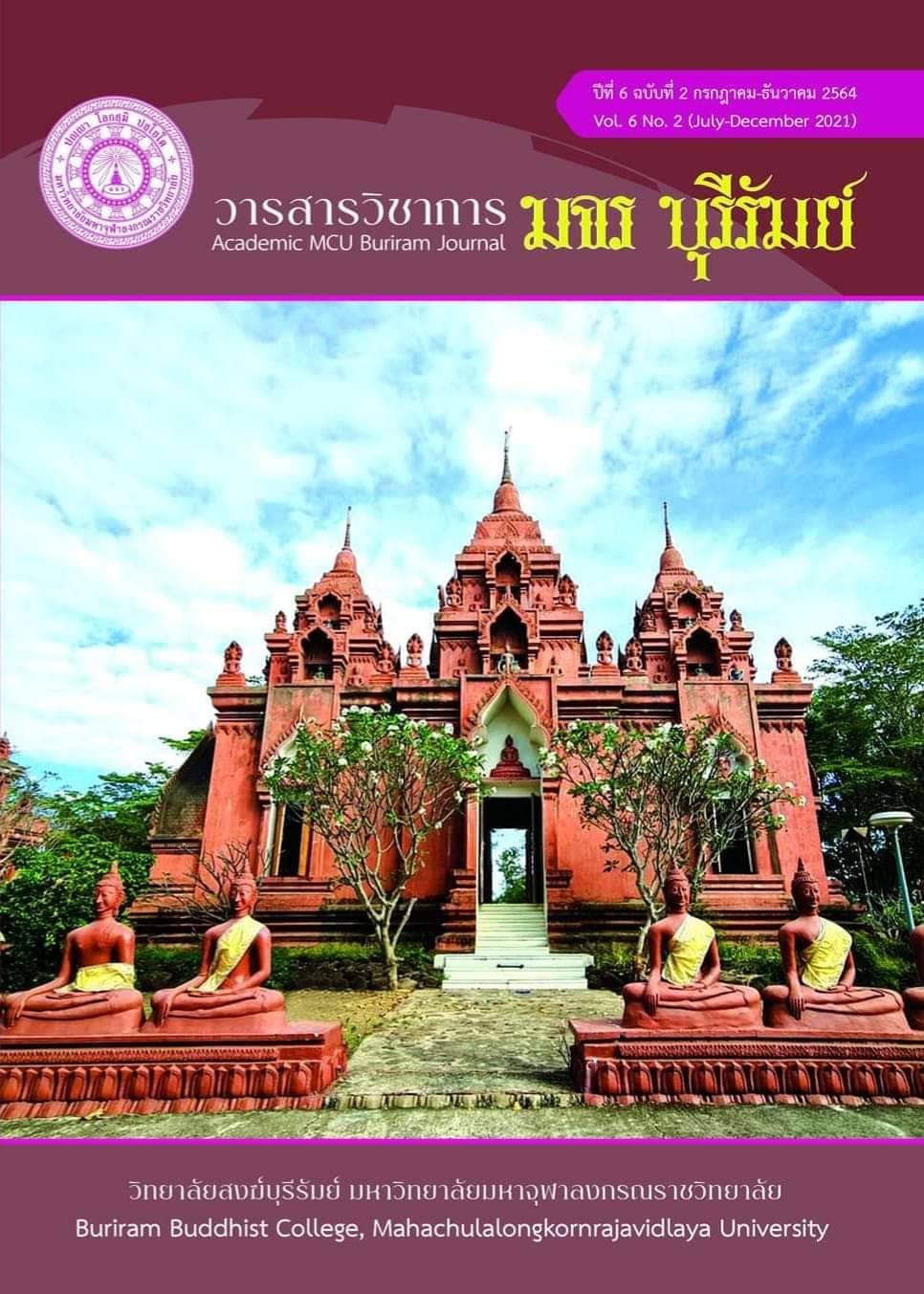An Analysis Study of Karma according to the View of Buddhist Scholars in Thai Society
Keywords:
Karma, Buddhist Scholars, Thai SocietyAbstract
This research article has objectives as follows: 1) to study the knowledge of karma in Buddhist scriptures, 2) to study the views of karma of Buddhist scholars in Thai society and 3) to analyze karma according to the views of Buddhist scholars in Thai society. This research is a qualitative research and the data obtained are descriptive analysis.
The results of research found that:
Buddhism explains karma as refers to actions arising from the intention that is wholesome (Kusala) or unwholesome (Akusala), which is expressed physically, verbally and mentally when the wholesome or unwholesome action has been done. That wholesome or unwholesome action will be a factor for the proper effect on that action. But if any action is unintentional would have no effect according to the definition of karma that is, not karma not according to the law of karma even if the karma is small or has been done for a long time. The result of karma is that the adversity will follow and must be affected when given the opportunity.
Views of Karma of Buddhist scholars in Thai society, it is an attempt to explain how severe the misunderstanding of karma is, how many types of karma are divided into Buddhist teachings? and how each type of karma is defined, what are its characteristics and functions? As for the matter of karma or the result of karma to show see the possibility of karma in various ways. This eliminates the doubt about whether karma is effective or not. How will the effect be the same or different? Evil deeds are called sins.
Analyzing karma according to the views of Buddhist scholars in Thai society, karma is an intentional action based on defilements which expressed through body, speech and mind. There are good karma and bad karma. It is the law of cause and effect, also known as the “law of karma”. When human do good karma, he will get good results, when human do evil, he will get bad results.
References
มหามกุฏราชวิทยาลัย. (2534). พระไตรปิฎกพร้อมอรรถกถา แปล ชุด 91. กรุงเทพมหานคร: โรงพิมพ์มหามกุฏราชวิทยาลัย.
สมภาร พรมทา. (2542). พุทธปรัชญา. กรุงเทพมหานคร: จุฬาลงกรณ์มหาวิทยาลัย.
เทวินทร์ เหล็งศักดิ์ดา. (2561). ศึกษาวิเคราะห์กรรมในคัมภีร์พระพุทธศาสนา. วิทยานิพนธ์พุทธศาสตรมหาบัณฑิต สาขาพระไตรปิฎกศึกษา. บัณฑิตวิทยาลัย: มหาวิทยาลัยมหาจุฬาลงกรณราชวิทยาลัย.
บุญเสมอ แดงสังวาล. (2546). เกิดเพราะกรรม. พิมพ์ครั้งที่ 2. กรุงเทพมหานคร: แสงดาว.
คณะสหายธรรม. (2535). กรรม. พิมพ์ครั้งที่ 2. กรุงเทพมหานคร: มูลนิธิอภิธรรม มหาธาตุวิทยาลัย.
สมเด็จพระพุทธโฆษาจารย์ (ป.อ. ปยุตฺโต). (2561). พจนานุกรมพุทธศาสตร์ ฉบับประมวลศัพท์. พิมพ์ครั้งที่ 31. กรุงเทพมหานคร: สำนักพิมพ์มหาจุฬาลงกรณราชวิทยาลัย.
พระพรหมโมลี (วิลาส ญาณวโร ป.ธ. 9). (2552). กรรมทีปนี. จัดพิมพ์โดย สำนักปฏิบัติธรรมประจำจังหวัดสงขลา แห่งที่ 2 วัดชัยมงคลพระอารามหลวง จังหวัดสงขลา.
วศิน อินทสระ. (2555). หลักกรรมและการเวียนว่ายตายเกิด. จัดพิมพ์เป็นธรรมทานโดยชมรมกัลยาณาธรรม. สมุทรปราการ: บริษัท ขุมทองอุตสาหกรรมและการพิมพ์ จำกัด.
Downloads
Published
How to Cite
Issue
Section
License
ทัศนะและความคิดเห็นที่ปรากฏในบทความวารสารฉบับนี้ถือเป็นความรับผิดชอบของผู้เขียนบทความนั้น ไม่ถือเป็นทัศนะและความรับผิดชอบของบรรณาธิการ





